Life
Sign up for our newsletter
We summarize the week's scientific breakthroughs every Thursday.
-
 Earth
EarthDecades of dumping acid suggest acid rain may make trees thirstier
Acidified soil loses calcium, which can affect trees’ ability to hang on to water.
-
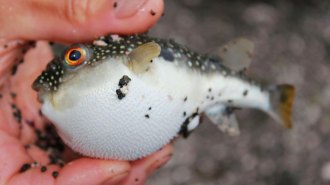 Animals
AnimalsThere’s more to pufferfish than that goofy spiked balloon
Three odd things about pufferfishes: how they mate, how they bite and what’s up with no fish scales?
By Susan Milius -
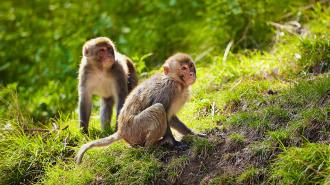 Life
LifeMonkeys can use basic logic to decipher the order of items in a list
Rhesus macaque monkeys don’t need rewards to learn and remember how items are ranked in a list, a mental feat that may prove handy in the wild.
By Bruce Bower -
 Health & Medicine
Health & MedicineA new study challenges the idea that the placenta has a microbiome
A large study of more than 500 women finds little evidence of microbes in the placenta, contrary to previous reports on the placental microbiome.
-
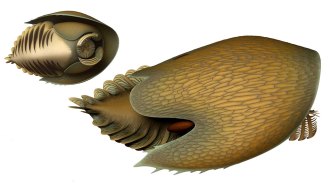 Paleontology
PaleontologyThis newfound predator may have terrorized the Cambrian seafloor
A newly discovered spaceship-shaped predator raked through the Cambrian seafloor in search of food.
-
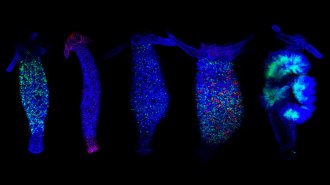 Life
LifeMapping how the ‘immortal’ hydra regrows cells may demystify regeneration
In the continually regenerating hydra, fluorescent markers help researchers track stem cells on the way to their cellular fate.
-
 Life
LifeGiving cats food with an antibody may help people with cat allergies
Research by pet-food maker Purina aims to disable the major allergen carried in cat saliva, a protein called Fel d1.
-
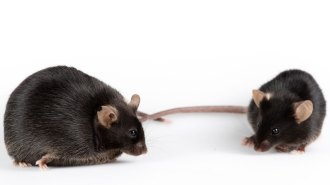 Life
LifeImmune system defects seem to contribute to obesity in mice
Subtle defects affecting T cells altered the animals’ microbiome and fat absorption, providing hints of what might also be going on in people.
-
 Life
LifeThis is the first fungus known to host complex algae inside its cells
In the lab, an alga and a fungus teamed up to exchange food, similar to lichens. But instead of staying outside, the alga moved into the fungal cells.
-
 Neuroscience
NeuroscienceA frog study may point to where parenting begins in the brain
Two brain regions, including one active in mammal parents, lit up with activity in both male and female poison frogs when caring for their tadpoles.
-
 Chemistry
ChemistryDroplets of these simple molecules may have helped kick-start life on Earth
Simple molecules called alpha hydroxy acids form cell-sized structures in conditions mimicking early Earth chemistry.
By Carmen Drahl -
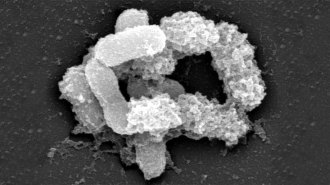 Neuroscience
NeuroscienceBoosting a gut bacterium helps mice fight an ALS-like disease
Gut bacteria may alter ALS symptoms for good or ill.